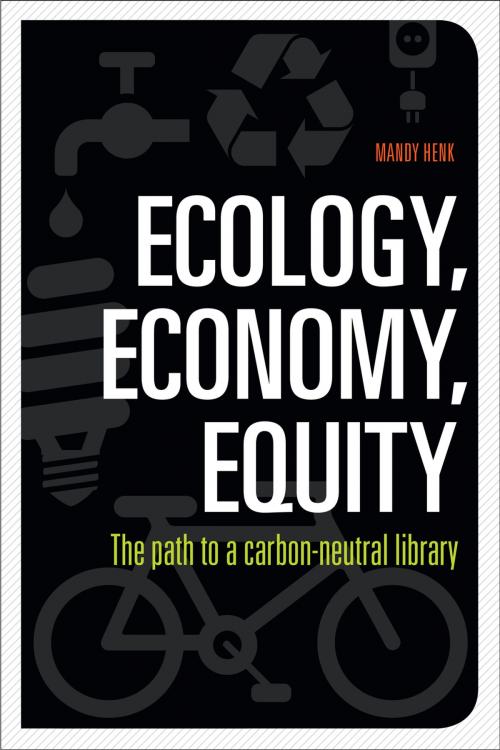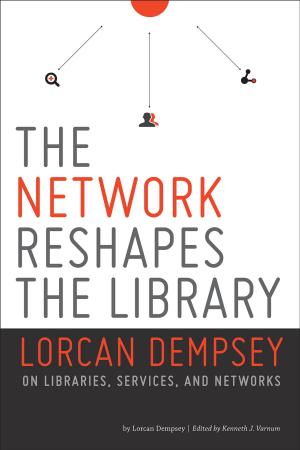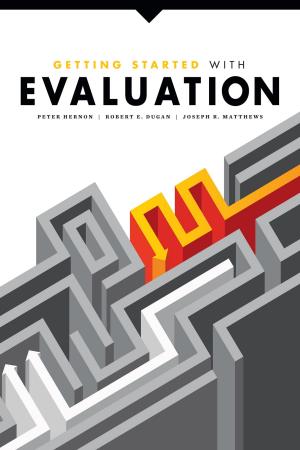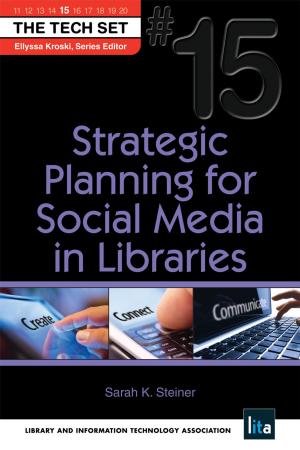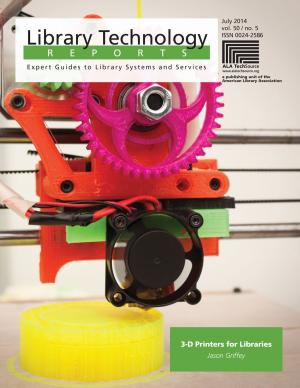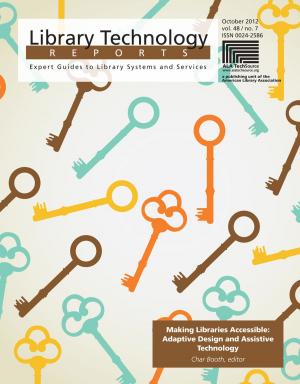Ecology, Economy, Equity
The Path to a Carbon-Neutral Library
Nonfiction, Reference & Language, Language Arts, Library & Information Services, Reference| Author: | Mandy Henk | ISBN: | 9780838919699 |
| Publisher: | American Library Association | Publication: | January 1, 2014 |
| Imprint: | ALA Editions | Language: | English |
| Author: | Mandy Henk |
| ISBN: | 9780838919699 |
| Publisher: | American Library Association |
| Publication: | January 1, 2014 |
| Imprint: | ALA Editions |
| Language: | English |
In the first book to seriously examine the future of libraries in a climate reality-based context, Henk convincingly argues that building a carbon-neutral future for libraries is not only essential but eminently practical. Using the “three E’s” of sustainability (ecology, economy, equity) as a foundation, she traces the development of sustainability from its origins in the 1970s to the present, laying out a path librarians can take at their own institutions to begin the process of building a carbon-neutral library. Rooted in the latest science but firmly focused on concrete action, her book Makes the case for sustainable libraries, tying the values that define the profession to the necessity of rethinking library operations and services in light of climate change Guides readers through the first steps, with advice on starting the conversation, conducting outreach to stakeholders, and forming a sustainability committee Includes a Sustainability Assessment and a sample sustainability plan that libraries can tailor for use at their own institution Looks at the challenges of technology and corporate power in the library, addressing the power imbalance between large corporations and libraries and suggesting alternatives to the status quo Discusses how libraries can combine strong advocacy with powerful activism to propel the library world into a socially just, safely powered world Offers a bibliography of additional resources Written by an activist who is also a working librarian, the book's balance between scientific research and step-by-step action will prove stimulating for library planners, administrators, LIS students, and anyone with an interest in climate change, sustainability, and libraries.
In the first book to seriously examine the future of libraries in a climate reality-based context, Henk convincingly argues that building a carbon-neutral future for libraries is not only essential but eminently practical. Using the “three E’s” of sustainability (ecology, economy, equity) as a foundation, she traces the development of sustainability from its origins in the 1970s to the present, laying out a path librarians can take at their own institutions to begin the process of building a carbon-neutral library. Rooted in the latest science but firmly focused on concrete action, her book Makes the case for sustainable libraries, tying the values that define the profession to the necessity of rethinking library operations and services in light of climate change Guides readers through the first steps, with advice on starting the conversation, conducting outreach to stakeholders, and forming a sustainability committee Includes a Sustainability Assessment and a sample sustainability plan that libraries can tailor for use at their own institution Looks at the challenges of technology and corporate power in the library, addressing the power imbalance between large corporations and libraries and suggesting alternatives to the status quo Discusses how libraries can combine strong advocacy with powerful activism to propel the library world into a socially just, safely powered world Offers a bibliography of additional resources Written by an activist who is also a working librarian, the book's balance between scientific research and step-by-step action will prove stimulating for library planners, administrators, LIS students, and anyone with an interest in climate change, sustainability, and libraries.
